
Become an Expert in Food & Sustainability
Earn your Certificate
What is the Food & Sustainability Certificate?
Food & Sustainability ties together several of the most critical issues facing us today: the environmental impacts of food production, the importance of food justice and accessibility, the complexity of international food systems, and most importantly, the positive changes we can make every day with our food choices.
This program is the first of its kind, developed by the T. Colin Campbell Center for Nutrition Studies (CNS). CNS is a 501(c)3 nonprofit organization committed to increasing awareness of the extraordinary impact that food has on the health of our bodies, our communities, and our planet.
Topics Include:
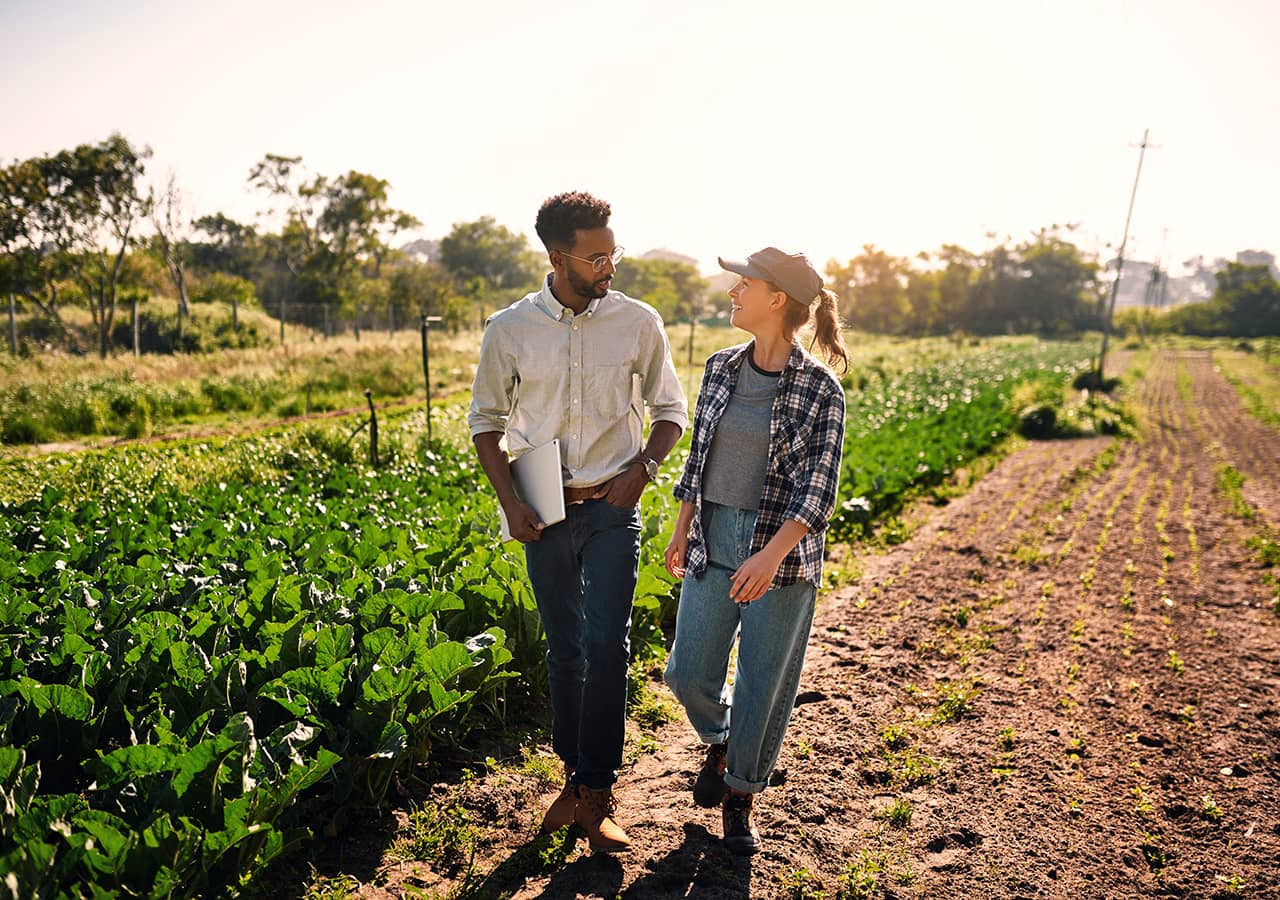

- How to achieve a sustainable lifestyle
- Understanding and mitigating food waste
- The environmental impact of global food production
- New and sustainable approaches to agriculture
- Community food systems and activism
- Sustainable business practices
- And much more
This course is a meaningful investment you can make right now—in yourself, your career, your community, and the health of our growing world.
Course Overview
This one-of-a-kind course is $499 for lifetime access and includes:
On-Demand
36 Hours of Content
Self-Paced
24/7 Access
Who Should Enroll?
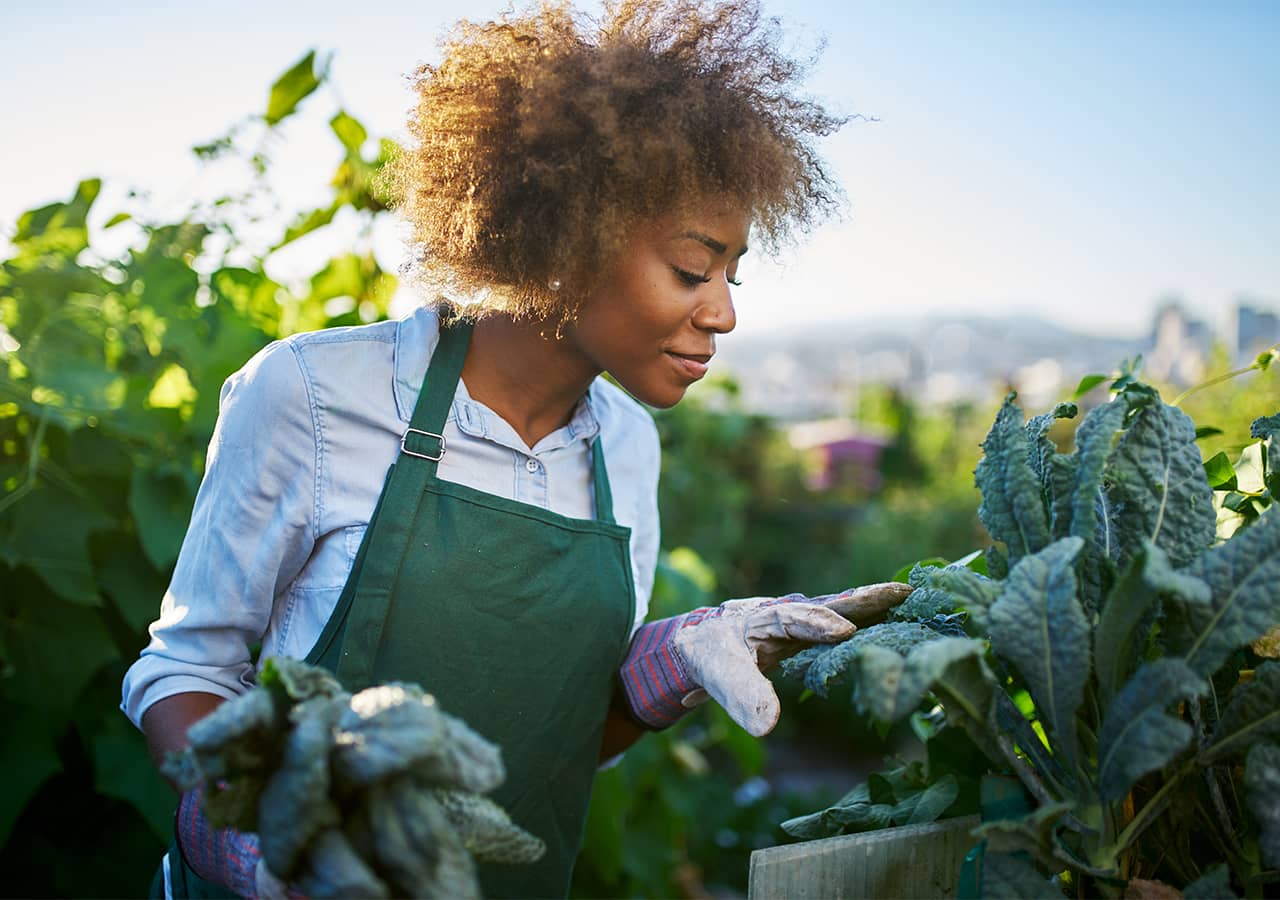
Who Should Enroll?
This certificate provides invaluable experience and education to anyone intrigued about sustainable agriculture. Whether you are interested in a career in this field or want to deepen your understanding of food systems, public health, global environmental change, or where your food comes from, this program is for you.

Learn from Sustainability Experts
Over 15 nutrition, policy, public health, and environmental thought leaders will guide you through the main sectors of the food system—farming, economic, social, and environmental—and highlight the many interconnections between them. Experts include:
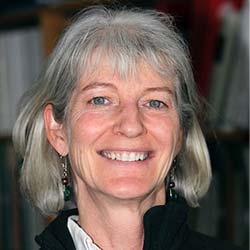
Drew Harvell, PhD
Dr. Harvell is a professor at Cornell University. Her research on the hygiene subsidies of marine ecosystems and damage of marine plastics has taken her from the reefs of Mexico, Indonesia, and Hawaii to the cold waters of the Pacific Northwest and resulted in over 170 academic articles in journals such as Science, Nature, and Ecology.
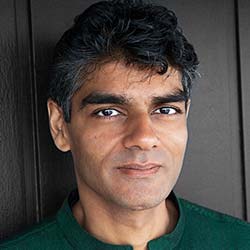
Raj Patel, PhD
Dr. Patel is an award-winning author, filmmaker, and academic. He has testified about the causes of the global food crisis to the US House Financial Services Committee and is a member of the International Panel of Experts on Sustainable Food Systems.
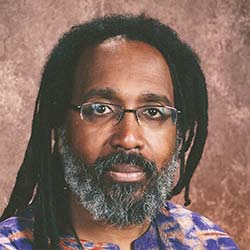
Malik Yakini
Mr. Yakini is the co-founder and Executive Director of the Detroit Black Community Food Security Network, which operates a seven-acre farm in Detroit. He served as Food and Community Fellow at the Institute for Agriculture and Trade Policy from 2011-2013 and was a Business Alliance for Living Local Economies (BALLE) Localist Fellow from 2014-2015.
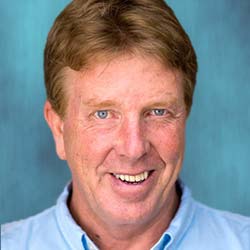
Bruce Monger, PhD
Dr. Monger is a Senior Lecturer and Researcher in the Department of Earth and Atmospheric Sciences at Cornell University. His research involves the use of satellite remote sensing methods to study environmental controls of ocean primary production at global scales. Dr. Monger received his BA from the University of Washington and his PhD from the University of Hawaii. He currently serves as a member of NASA's Ocean Biology and Biogeochemistry Science Team.
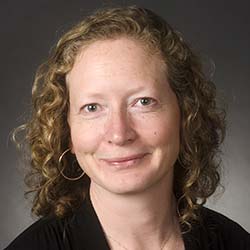
Emelie Peine, PhD
Dr. Peine is Associate Professor of International Political Economy at the University of Puget Sound in Tacoma, Washington. She earned her bachelor's degree from The Evergreen State College and her Master's of Science and PhD in Development Sociology from Cornell University.
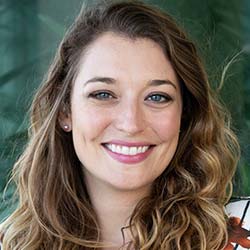
Alizé Carrère, MSc
Ms. Carrère is a National Geographic Explorer, filmmaker, and environmental anthropologist researching and documenting human adaptations to environmental change. Alizé is currently pursuing her PhD at the University of Miami in Environmental Anthropology.
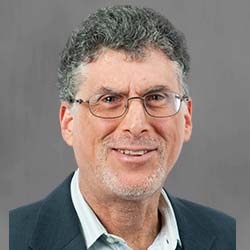
Doug Gurian-Sherman, PhD
Dr. Gurian-Sherman is a consultant on agriculture with Strategic Expansion and Training, LLC, in Minneapolis, Minnesota. He advises civil society coalitions, organizations, and others in the United States and internationally on issues of climate change and agriculture, pesticide alternatives, and genetic engineering. He holds PhD and MS degrees in plant pathology from the University of California, Berkeley, and a BS in natural resources from the University of Michigan.
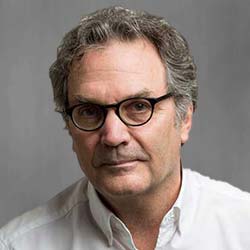
Dan Imhoff, MA
Mr. Imhoff has written for more than 25 years on topics related to ecological sustainability. Dan is the president and co-founder of Watershed Media as well as president and a co-founder of the Wild Farm Alliance, a national organization that works to promote agriculture systems that support and accommodate wild nature. He holds an MA in international relations from Syracuse University and a BA in international relations from Allegheny College.
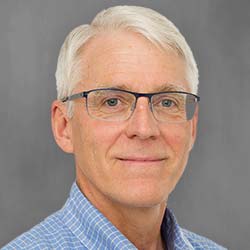
Peter Lehner, Esq
Mr. Lehner is Managing Attorney of Earthjustice's Sustainable Food & Farming Program, developing strategies to promote a more environmentally sound agricultural system and to reduce health, environmental, and climate harms from production of our food. Peter holds an AB in philosophy and mathematics from Harvard College and is an honors graduate of Columbia University Law School.
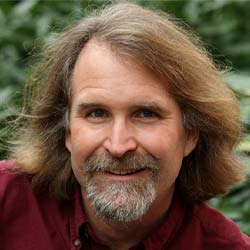
David Montgomery, PhD
Dr. Montgomery is a MacArthur Fellow and professor of geomorphology at the University of Washington. He is an internationally recognized geologist who studies landscape evolution and the effects of geological processes on ecological systems and human societies. An author of award-winning popular-science books, he has been featured in documentary films, network and cable news, and on a wide variety of TV and radio programs, including NOVA, PBS NewsHour, Fox and Friends, and All Things Considered.
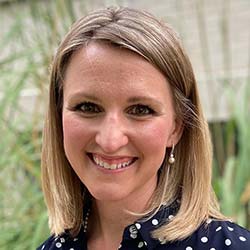
Claire O'Connor, JD
Dr. O'Connor is the Director of the Water & Agriculture, Water Division, Nature Program at the Natural Resources Defense Council (NRDC). She focuses on the crucial relationship between water and agriculture, emphasizing solutions to water-resource challenges that will benefit both farmers and their non-farming neighbors. O'Connor is a graduate of the University of Nebraska-Lincoln and Georgetown University Law Center.
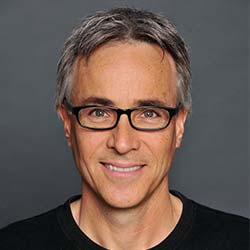
David Simon, Esq
Mr. Simon is the author of Meatonomics and a vegan lawyer, animal activist, and advocate for sustainable consumption. He serves on the advisory council of the Animal Legal Defense Fund (ALDF) and on the boards of Animal Protection and Rescue League (APRL) and the APRL Fund. Dave received his BA from UC Berkeley and his JD from the University of Southern California.
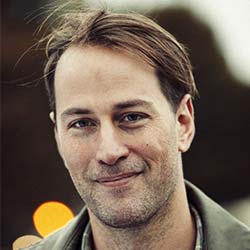
Tristram Stuart
Mr. Stuart is an international award-winning author, speaker, campaigner, and expert on the environmental and social impacts of food. He is an Ashoka Fellow, a National Geographic Emerging Explorer, and a World Economic Forum Young Global Leader.
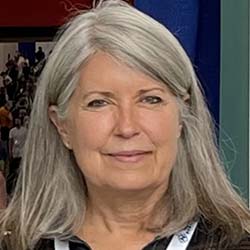
Gwyn Whittaker
Following a successful decades-long career in IT, Ms. Whittaker became passionate about nutrition and health. She was inspired to provide plant-based jumpstarts, documented in the film PlantPure Nation. She also opened the GreenFare restaurant, bringing organic whole-plant foods to her community. She continues running jumpstart programs with incredible results.
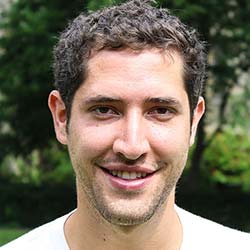
Steven Disla
Mr. Disla is the instructional designer for the Food & Sustainability course and is a soil food web technician. He is also the co-founder of the RAICES Land Institute in the Dominican Republic, a non-profit that focuses on regenerative agriculture as a way to inspire communities of health. In North Carolina, where he lives, he has a farm with a burgeoning nursery business.
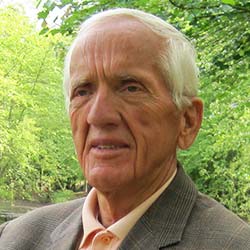
T. Colin Campbell, PhD
Dr. Campbell is a Cornell University Professor Emeritus and world-renowned nutritional biochemist. He is the bestselling author of multiple books, including The China Study. Several documentary films feature Dr. Campbell and his research, including the highly acclaimed Forks Over Knives.
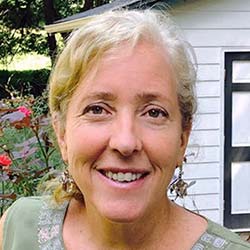
LeAnne Campbell, PhD
LeAnne Campbell is the CEO of the T. Colin Campbell Center for Nutrition Studies and Founder of Global Roots, a non-profit that promotes the growth of vibrant, inclusive, and resilient communities of health through regenerative land practices. She has over 30 years of experience working with communities, universities, and schools, in the US and abroad.
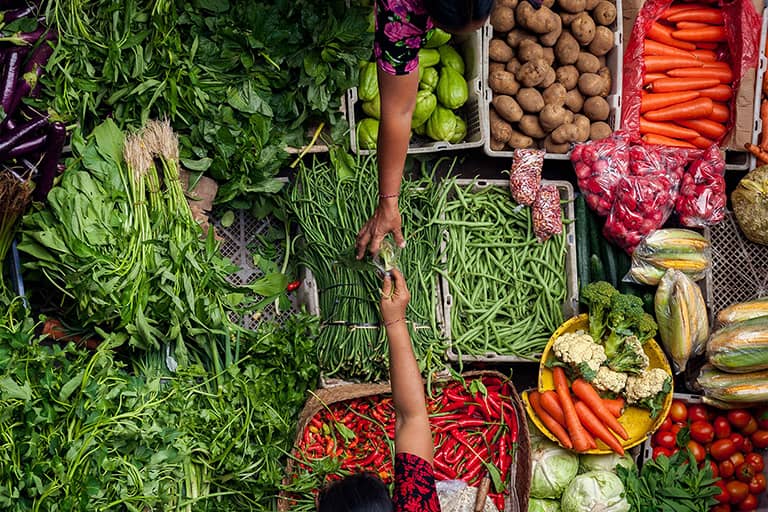
Course Details & Learning Outcomes
Click the topics below for a comprehensive look at the Food & Sustainability certificate program.
This three-course, six-week certificate program will present you with an overview of the main sectors of the food system: farming, economic, social, and environmental. Industry experts and academic thought leaders will guide you through these sectors and highlight the many interconnections between them. You will learn the challenges global food production faces and its impact on natural ecosystems; how domestic and international policy play a role; how innovative individuals and organizations are transforming the food system by prioritizing sustainable practices; and more.
Course Modules
Impact of Food Production on Climate Change
Learn what climate change is and how food choices make a difference. You will be introduced to the food system: a vast web of processes and conditions that allow for food production, processing, distribution, consumption, and more.
Industrial Agriculture
This module focuses on the farming and environmental sectors of the food system. You will survey the most important features of industrial agriculture and learn about their environmental consequences.
Land and Water Use
Look at the use and management of soil and water resources. By the end of this module, you will have a deeper appreciation of their critical importance.
Oceans, Streams, and Waterways
This module will take you deep into the oceans, streams, and waterways of the world. You will learn how the health of the planet is intimately tied to their health.
The Path Forward - Nutrition for People and Planet
Use what you have learned so far to create a working definition of sustainability. You will examine population and food consumption trends, explore the connections between nutrition with sustainability, and think about the ways in which you can personally and collectively address the challenges presented in the previous modules.
Learning Outcomes
- Learn the science behind sustainable food choices
- Analyze the ecological impact of industrial agriculture
- Explore alternatives to our current food production system
- Reflect on how personal food choices impact our environment
Course Modules
Rise of the Industrial Food System
Learn about the historical roots of food policy in the US today and the landmark events and policy decisions that define our current food system.
American Food Policy
In this module, you will explore how current food policy impacts food production and consumption in the United States, with a special focus on the Farm Bill and governmental regulatory agencies such as the USDA, the FDA, and the EPA. You will learn how each of these agencies operates within the food system.
Understanding and Mitigating Food Waste
Learn why food waste is one of the most important and widely discussed challenges within the food system. Understanding where waste comes from will empower you to consume more sustainably and advocate for a less wasteful system.
The True Costs of Food
Look into the health, environmental, and social consequences embedded in the journey of food from farm to consumer. By shining a light on inefficiencies in the food system, this module will help you transition toward more sustainable purchasing practices.
Food Accessibility and Food Justice in the US
Understand social challenges within the food system. Despite increased food production, there is still a lack of healthy, affordable food in low-income communities and communities of color, as well as varying disparities in rural localities compared with urban ones. You will explore how this came to be, as well as some of the structural challenges that continue to limit food access.
Globalized Food Systems
Learn about global institutions such as the World Trade Organization (WTO) and the International Monetary Fund (IMF) and their influence on the food system. You will also look at international aid policies and the role of the green revolution in exporting industrialized farming methods.
Learning Outcomes
- Identify methods to reduce food waste in your home and community
- Examine the impact of government and industry on your dietary choices
- Recognize how food policy contributes to an unhealthy and inequitable system
- Envision more socially just and equitable solutions for our communities
Course Modules
Approaching Agriculture Differently
Learn about specific farming methods that are more sustainable, as well as their environmental, economic, and social rewards.
Engaging Business Solutions
Consider what sustainability means in the context of business and community solutions, explore alternative business models, and learn about inspiring for-profit and non-profit businesses that are building long-term partnerships that are economically just and environmentally sound.
Agriculturally Driven Environmental Regeneration
Learn about tangible ways in which agricultural systems can drive environmental regeneration while providing bountiful harvests for people and biodiverse ecosystems alike.
WFPB Nutrition for Personal, Communal, and Ecological Health
Meet a health care practitioner working to integrate a direct line between sustainably produced food and patient-centered practice. Learn from experts on the power of whole food, plant-based jumpstarts.
Taking Action
The balance between local, regional, national, and global food systems is not simple. There are intricate areas of overlap between these systems and countless ways to engage with them. Likewise, there is no single model for taking action. What we do have are a set of guiding principles. In this module, you will explore these principles and how to apply them to your life.
Learning Outcomes
- Meet the people and organizations that are transforming food systems
- Evaluate methods for sustainable farming solutions and food distribution
- Explore sustainable entrepreneurship and alternative business models
- Empower yourself and others to make choices for a more sustainable future
Hear From Our Students
Ready to Get Started?
Still have questions? Contact us here